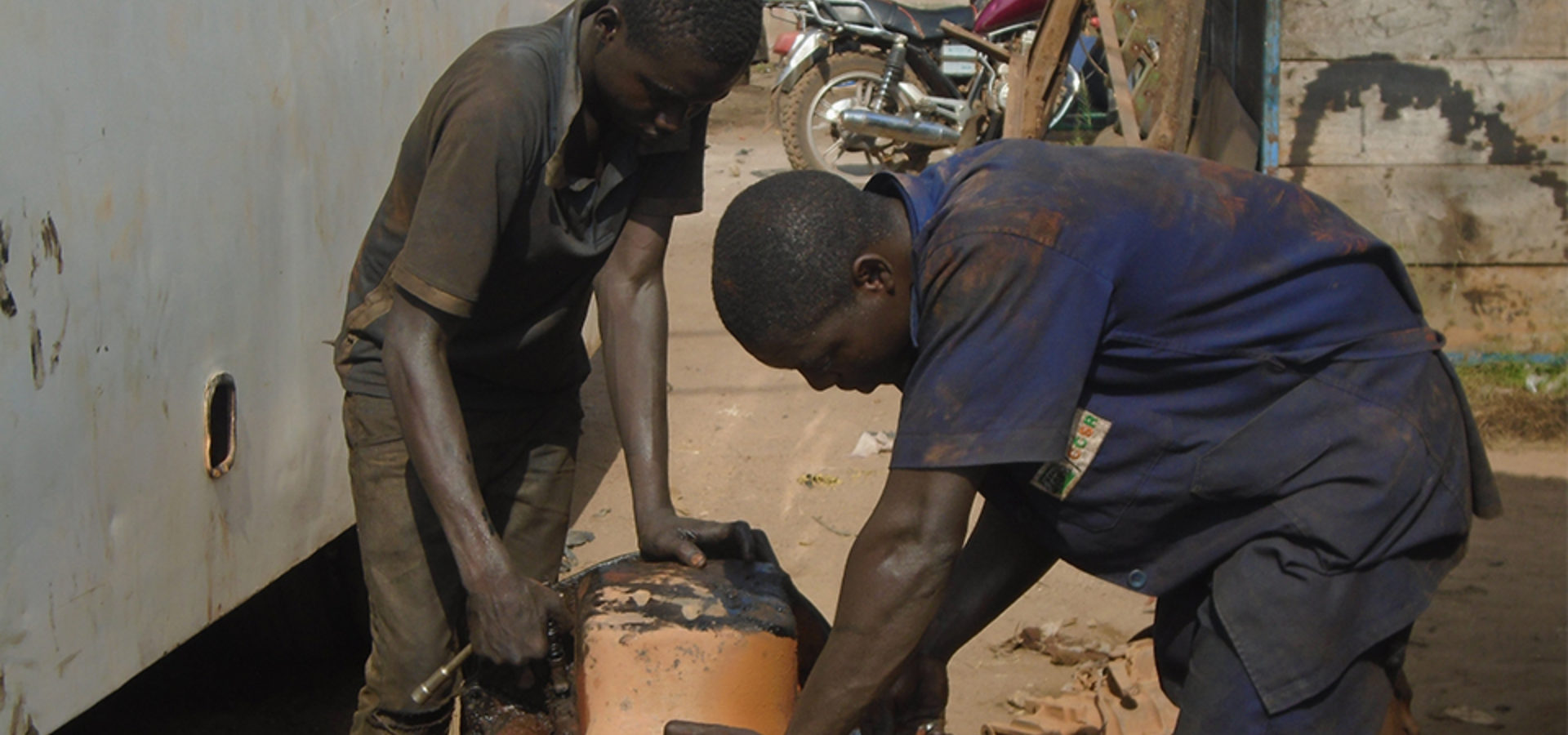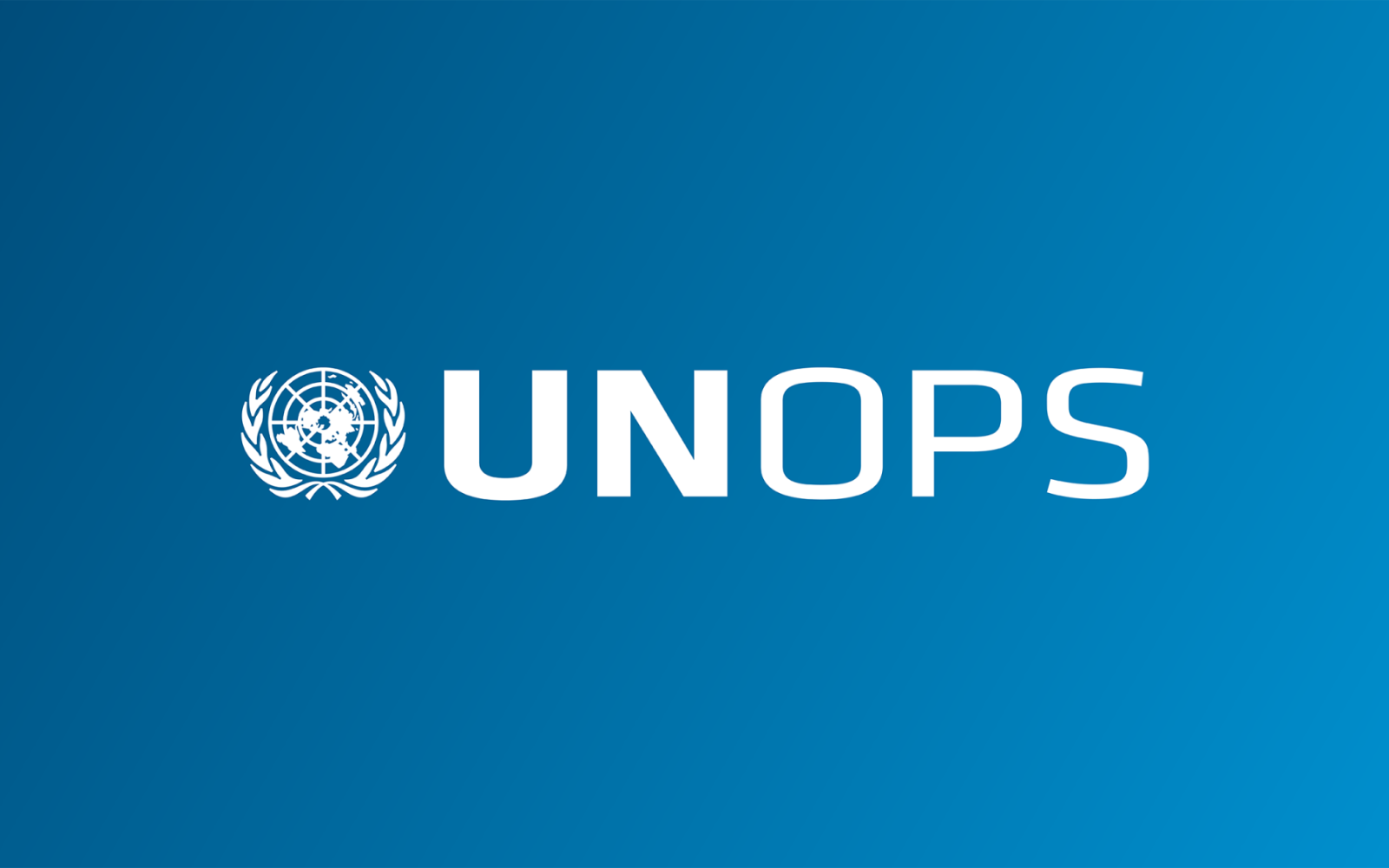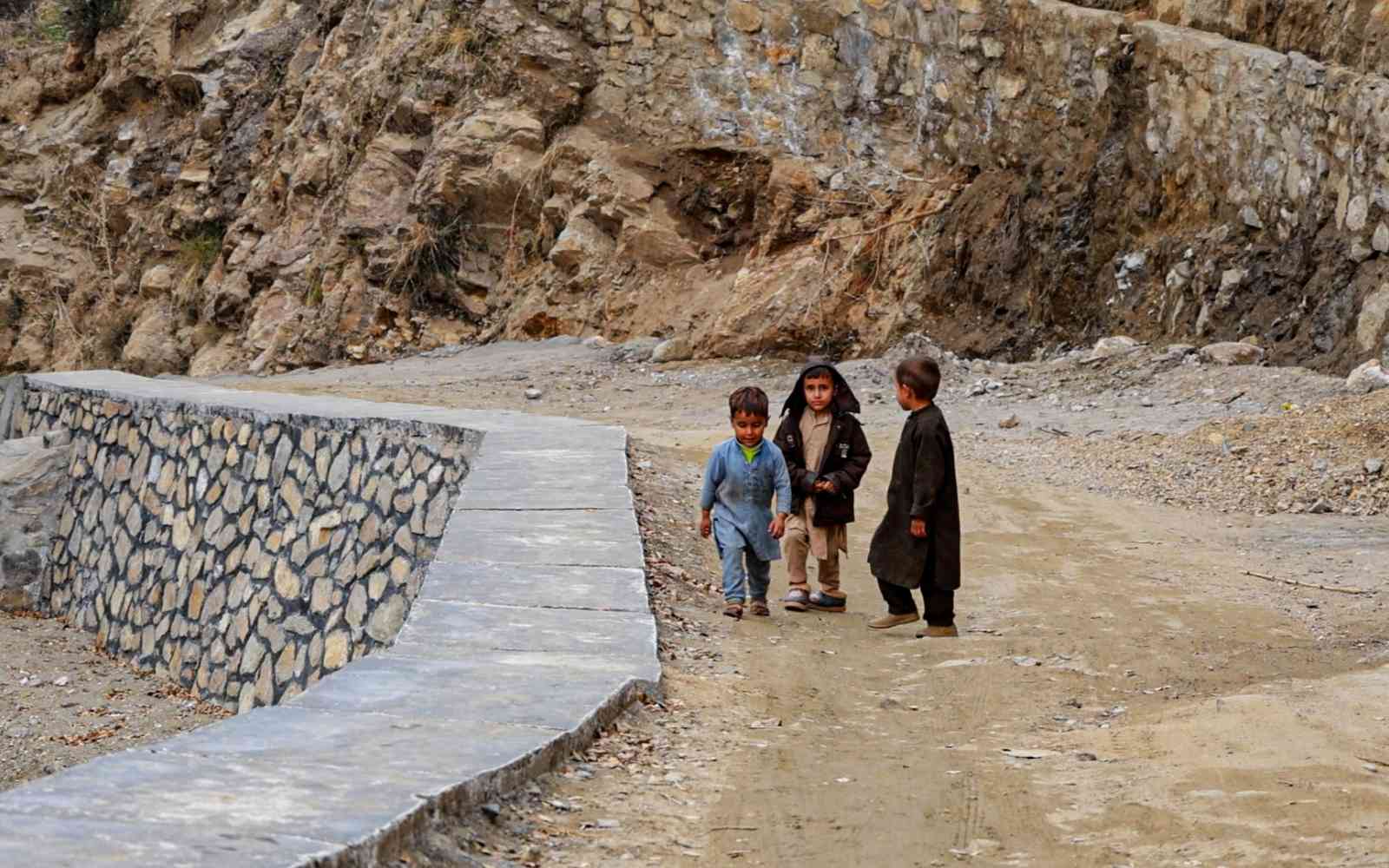The United Nations Office for Project Services (UNOPS)
A life free of weapons and fighting

A master tailor with a thriving business in Côte d’Ivoire, Moussa Keita was not always the businessman he is today. Like many others who share his experience of war, Moussa has traded in his weapons for a new life.
Côte d'Ivoire boasts gorgeous coastlines, rainforests and sub-tropical savannas. As the world's top exporter of cocoa beans and cashew nuts, with a large oil and manufacturing sector, the country is one of the largest economies in the West African Economic and Monetary Union.
For decades after the West African country gained independence from France, it thrived politically and economically, yet ethnic tensions had already started to emerge by the 1970s.
A recession in the late 1990s and escalating tension between various political parties and ethnic groups brought the period of peace and prosperity to a grinding halt. In 2002, Côte d'Ivoire found itself amid a violent civil war that would last five years.
-
Driving licenses have been issued through the training courses to date
3000
-
Beneficiaries have been trained in agro-pasture farming
1411
-
Have received a professional orientation (including skills evaluation)
3800
-
Have started working in artisanal trades and craftsmanship through apprenticeship
1721
-
Have acquired building and masonry skills
120
Internal fighting re-emerged after a local election in 2010 and continued for the following six months. Armed conflict claimed many lives and drew thousands of men, women and children into a life of violence. After the fighting ended these ex-combatants were and continue to be faced with the challenges of adjusting to normal civilian life. Many former fighters suffer from combat-related post-traumatic stress disorder, which if left untreated can persist for years and lower quality of life.
On 8 August 2012 the Authority on Disarmament, Demobilisation and Reintegration (ADDR) was created in Côte d'Ivoire; since then 69,000 former combatants have successfully been reintegrated into society. In January 2015, The United Nations in Côte d'Ivoire hired UNOPS to boost the existing professional training capacity of the ADDR.
UNOPS selected national institutions and private companies through competitive processes, who in turn delivered certificates for technical skills in five different vocational areas. The certificates are recognized by the Government of Côte 'd'Ivoire. This programme has made 19,275 vocational training spots available to ex-combatants who were demobilized by the ADDR, in order to give them a chance to earn a living and ease their return into society.
On 30 June 2015 the Cellule de coordination et de suivi de la réinsertion (CSSR or National Centre for reinsertion coordination and monitoring) took over from ADDR and since then has continued the training of beneficiaries who had been demobilized by the ADDR with UNOPS.
To date, 13,435 out of the 19,275 vocational courses available have been accessed by former combatants. They enrolled in practical vocational training and chose from five reinsertion programs: vegetable farming; breeding livestock; construction; transportation; and small business management and apprenticeship in over 30 different trades. The remaining spots are being used to offer driving and on-site construction trainings.

"My workshop had three sewing machines before, today I have a dozen which helped me to be more profitable and efficient in meeting my clients' needs," said Moussa Keita.
In his role as a trainer and employer of other beneficiaries, he observes: "When they come to my workshop and they see me, a former combatant, it encourages them to work hard. They think, 'I can succeed like him in the future. I can also be a trainer'."
So far, over 8,000 former combatants, including 752 women, have benefitted from the UNOPS-implemented vocational training. Schools, police stations and clinics have been built or refurbished through 21 vocational construction sites.

Combining rehabilitation with vocational and life-skills training helps treat combat-related trauma and boost former combatants' social inclusion. The government puts the number of post-war demobilised Ivorian fighters at 69,000 men and women.

A violent history makes former combatants volatile and puts them at risk of picking up arms again. To mitigate this threat, regular follow-ups are held to encourage positive and sustainable reintegration.
To make sure that former combatants' reintegration into community life is successful, progress is monitored and evaluated by a joint UNOPS-CCSR dedicated team. A mobile application developed by UNOPS is used by the team to record information and the progress of ex-combatants.
The reintegration project is widely recognized by international disarmament, demobilisation and reintegration experts. The CCSR and the Ivorian government are currently extending the project to the reintegration of homeless children.










